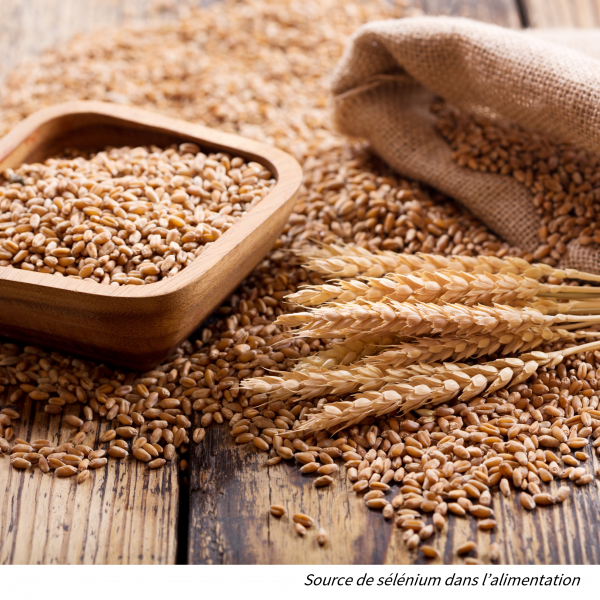Selenium

Selenium
Selenium (Se) is an essential trace mineral; the amount of selenium intake varies considerably and is influenced by where the food is grown1.There are two forms of selenium inorganic and organic. Inorganic forms of selenium such as selenites and selenates can be found in soils and are accumulated by plants and subsequently converted to organic forms (e.g., selenocysteine and selenomethionine). Selenomethionine is the major form of selenium that can be found in animal and human tissues1.Dietary source of Selenium
Inorganic selenate and selenite are not major dietary constituents. Organic selenium compounds (selenomethionine, selenocysteine) are present in cereal, in meat, and in vegetables2What are the benefits of selenium for beauty?
Selenium helps to maintain healthy, strong hair and nails3 and contributes to the protection of cells from oxidative stress.What are the benefits of selenium?
Additional benefits of selenium include:
- Contributes to the normal function of the immune system
- Selenium contributes to the normal thyroid function
- Contributes to normal spermatogenesis
Present in:
RICHELET® Skin Renewal food supplement - 30 tablets (1-3/day)
Richelet Skin Renewal with Collagen Peptides & Hyaluronic Acid.
RICHELET® Skin Moisture food supplement - 30 capsules (1-3/day)
with Hyaluronic Acid, Borage Oil and Safflower Oil
RICHELET® Hair, Skin, Nails food supplement - 30 capsules (1/day)
High in Biotin and 6 essential minerals
RICHELET® Hair Strength food supplement - 30 capsules (1/day)
with L-Cystine and L-Methionine, components of keratin